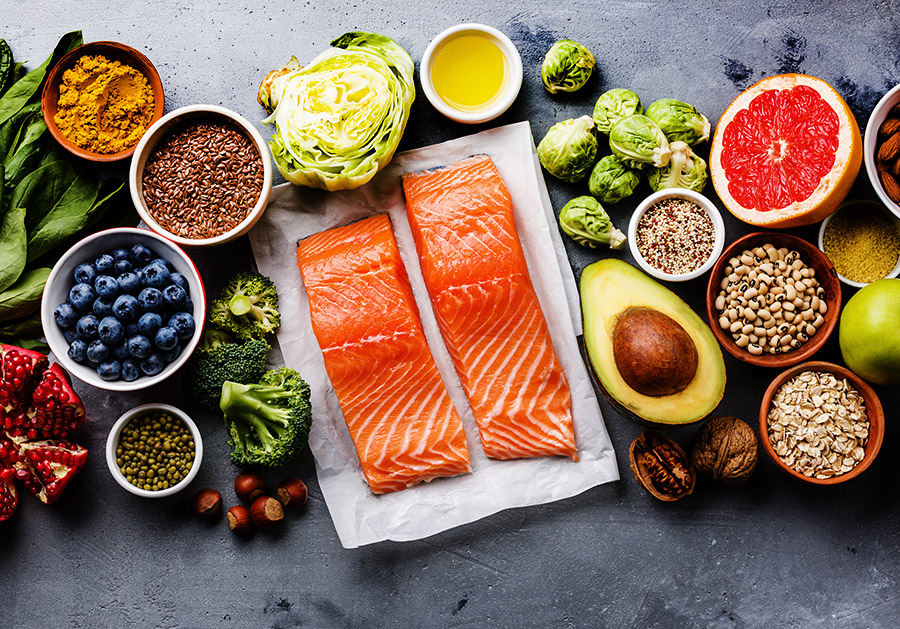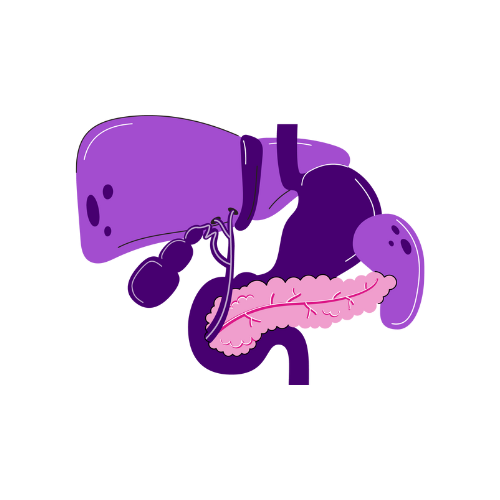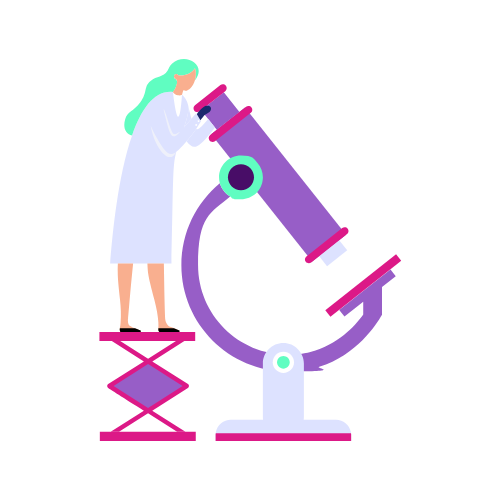Diet & Nutrition

PanKind advocates for all pancreatic cancer patients to receive care from a nutritional specialist, have access to appropriate information about diet and nutrition and access to pancreatic enzymes. You may find it helpful to see a dietitian at the time of diagnosis, prior to surgery and post-surgery to help maintain an appropriate weight, manage any diabetic associated issues and any other symptoms linked to diet and digestion.
Jump to a Topic:
How can pancreatic cancer affect your digestion?
What symptoms are related to diet and nutrition?
How can pancreatic cancer affect your digestion?
The pancreas produces enzymes that help digest food. When enzymes break down food, the nutrients can be absorbed into the blood and used by the body.
Pancreatic cancer can affect digestion in several ways. The tumour can reduce the number of enzymes your pancreas produces. It can grow to block the pancreatic duct which prevents the enzymes reaching your small intestines and the food they are needed to digest. If there are not enough enzymes, or they cannot reach food to digest it, nutrients from food can’t be absorbed by your body. This can be treated with pancreatic enzyme supplements.
Pancreatic cancer can also reduce the number of hormones such as insulin and, or glucagon that your pancreas produces which control the levels of sugar in the blood. This can cause diabetes. It is important to get specialist advice from your doctor and dietitian about the best way to manage diabetes when you have pancreatic cancer.
Treatments for pancreatic cancer can also affect diet and nutrition. Surgery for pancreatic cancer, where all or part of the pancreas is removed can affect the number of enzymes and hormones the pancreas produces. Diet can also be affected by the side effects of chemotherapy.
What symptoms are related to diet and nutrition?
It is common for people with pancreatic cancer to experience symptoms related to eating and digesting food. While some of these may be signs that your body is not digesting or absorbing nutrients properly, they may also be caused by other things.
If you are experiencing any of the following symptoms, speak to your doctor.
- Loss of appetite
- Weight loss
- Nausea and vomiting
- Diarrhoea
- Yellow, oily, floating stools
- Stomach pain or discomfort
- Bloating
- Wind
- Feeling full quickly
- Needing to empty your bowels urgently, especially after eating
- Developing diabetes
Nutrition
Pancreatic cancer and its treatments can cause unwanted weight loss, make it hard to maintain weight and get appropriate nutrition.
No one food contains all the nutrients our body needs so it is important to eat a variety and balance of foods. It is particularly important for people with pancreatic cancer to get enough energy to fuel the body, help you gain weight and be healthy, as well as enough protein to build and repair the cells and muscles, and vitamins and minerals to help your body function at its best.
Eating high energy and high protein foods may help you maintain your weight and feel better. Below are some examples of foods that are high energy or high protein. Always speak with your doctor and your dietician before you make any changes to your diet.
High protein foods:
- Meat, chicken and fish
- Eggs
- Beans, chickpeas & legumes
- Full cream milk & milk products e.g. milkshakes
- Cheese
- Yoghurt, custard and ice cream
- Nuts & seeds
- Nutrition supplement bars & powders
High energy foods:
- Butter, margarine & oil
- Cream & coconut milk
- Dips
- Dried fruit
- Avocado
- Jam, honey, maple syrup & sugar
- Nuts, seeds
- Chocolate
Pancreatic Enzymes
Pancreatic enzymes help break down the proteins, fats and carbohydrates and are essential to digestion. When pancreatic cancer, or surgery such as the Whipple procedure affects the number of enzymes produced, pancreatic enzyme supplements can be used to help manage diet-related symptoms. This is known as pancreatic enzyme replacement therapy (PERT).
Pancreatic enzyme supplements come in capsules that contain several kinds of enzymes:
- Protease to digest protein and keep the bowel free of parasites,
- Lipase to digest fats; and
- Amylase to digest carbohydrates.
There are several types of pancreatic enzyme supplements that your treating medical team may prescribe before and/or after surgery. The amount needed varies by individual and may change over time. Sometimes it can take a while to work out the dose that is ideal for you. An experienced dietitian will be able to guide you through this.
Your doctor and dietician can advise you if enzyme supplements are suitable for you and help you to work out the best dose.
All pancreatic enzyme supplements are made from pork products. If you have an allergy or other concerns about this, please speak to your doctor. If there is a problem with taking these for religious reasons, please speak to your religious leader as they may grant exemptions for essential medications.
Managing Diabetes
The pancreas produces hormones including insulin and glucagon that help control the levels of sugar in the blood. When the body cannot control blood sugar levels, it is called diabetes.
Pancreatic cancer can cause diabetes by reducing the function of the pancreas. Surgery, where part or all of the pancreas is removed, can also cause diabetes.
There are many ways to help control diabetes including diet and medication. Uncontrolled diabetes can make you very sick. If you are diagnosed with diabetes, as well as seeing your oncologist (cancer doctor) you may also see an endocrinologist, who specialises in hormonal problems, and a dietitian.
Where can I find support?
Your doctor and healthcare team are the best people to speak to about your diet and nutritional needs. You may be referred to a cancer dietician that is connected to the cancer centre where you are being treated. The Dietitian's Association of Australia can also help you find an Accredited Practicing Dietitian who specialises in cancer care. They will also be able to advise you about any costs associated with seeing a dietitian. If you are referred by your GP (with a care plan) to a dietician, Medicare may cover some of the costs. If you have private health insurance some of the costs may be covered so check with the insurance company first. Some public hospitals have free outpatient clinics with dieticians, however there may be a long wait.
Dietitian vs Nutritionist
An Accredited Practising Dietitian is the only credential for dietitians recognised by Medicare and the Department of Veterans’ Affairs (DVA) and many private health insurers. A nutritionist has a tertiary qualification but has not completed the strict criteria to become an Accredited Practising Dietitian.
Food Planning Ideas
To guarantee the best diet for pancreatic cancer patients, here are some kitchen stocking tips to improve your quality of life:
- Shop online and get groceries delivered - Save yourself the time and effort of walking through overcrowded grocery stores and waiting in queues by placing your next grocery order online. With a simple touch of a button, you can add to your cart all the nutritionally beneficial food items you need to maintain the best diet for pancreatic cancer, delivered right to your door.
- Buy pre-prepared meals - With the proper research, you can locate a prepared meal supplier that’s the best diet for pancreatic cancer to sustain you throughout the day and avoid cooking and clean-up.
- Buy staples that will last in the cupboard or freezer for a long time - From high-protein canned beans, chickpeas and legumes to high-energy jam, maple syrup and honey, there are plenty of staple food items to add to your pantry for healthy additions to many meals.
- Cook large batches and freeze portions for later - Between meal prep and clean up, the most effective solution is to cook in larger batches. That way, you can meal prep and even freeze the extra portions you know you won’t get to in the coming days.
- Ask friends or family for help with cooking - If you could use an extra hand, why not invite your loved ones to come round and help you cook up a delicious meal to share, with plenty of leftovers to enjoy over the next couple of days?
- Reach out to support services for help - If you find it difficult to shop or prepare food for yourself or your loved one with pancreatic cancer, reach out to a support service that provides meals to people’s homes Australia-wide.
Getting Help with Food
If you’re finding it hard to shop and prepare food for yourself or a loved one with pancreatic cancer, try reaching out to a support service.
Meals on Wheels is a not-for-profit service that provides meals to people’s homes across Australia. Service availability and eligibility will depend on your circumstances and local service.
Commonwealth Home Support Programme – gives basic support for people aged over 65, including help with cooking and advice from a dietitian. Cooked meals may be provided at home or at a community centre. A home support assessment will find out what help you need.
Home Care Packages – provide services for people aged over 65, which can include help preparing meals, using eating utensils or eating. Help is also available with special diets for health, religious, cultural or other reasons.
National Disability Insurance Scheme (NDIS) – can fund help for people with disability, including planning and cooking meals or getting meals delivered. The scheme also funds training in home care to encourage independence and may pay for products that can help with meal preparation.
State and territory Community and Home care programs:
- Queensland – Community and home care services
- South Australia – Home and community care services for older people or Aboriginal Home Care
- Tasmania – Home and Community Care
- Victoria – Home and Community Care Program
- Western Australia – Home and Community Care
- (note: the Australian Capital Territory, New South Wales and Northern Territory do not have separate program)
- Local government programs – such as Mornington Peninsula Shire’s meals on wheels service
- Neighbourhood and community centres and churches – often have cafes and restaurants with free or subsidised (cheaper for you) meals
Sources
Pancreatic Cancer UK, Diet Booklet, accessed Jan 2020.
Cancer Council Victoria, Diet and nutrition, accessed Jan 2020.
PanCare, Dietary Booklet, accessed Jan 2020.
Always consult your doctor or health professional about any health-related matters. PanKind does not provide medical or personal advice and is intended for general informational purposes only. Read our full Terms of Use.
Thank you to the clinicians, researchers, patients, and carers who have helped us create and review our website information and support resources, we could not have done it without you.
Explore the PanKind website for information on diet and nutrition, including supplemental pancreatic enzymes
At PanKind, we understand adjusting your dietary routine can be overwhelming. If you have any specific questions about diet and nutrition while living with pancreatic cancer, please consult with your medical team.






